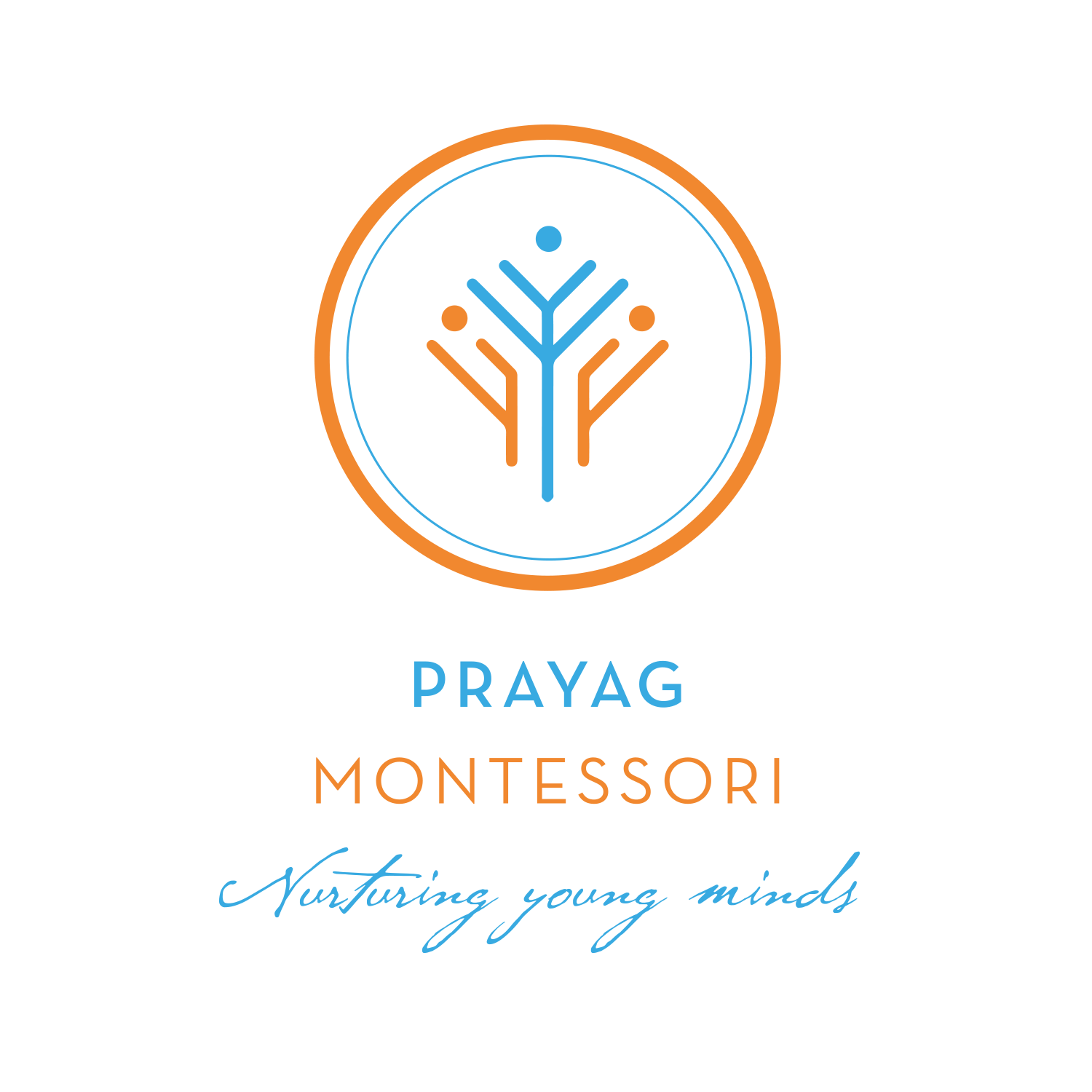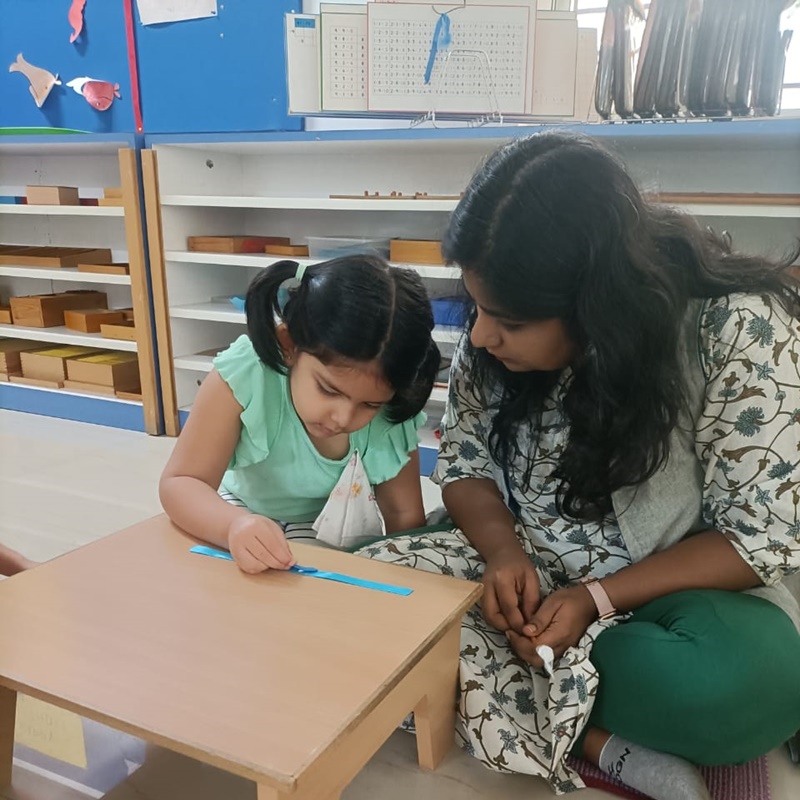
Respect for the Child
Respect for the Child is the cornerstone on which everything at Prayag rests. The facilitators show respect for the child when they help them do things and learn for themselves, even in the virtual world. When children have choices, they are able to develop the skills and abilities necessary for effective learning autonomy and positive self-esteem.
Our offline and online sessions offer children a wide array of topics, both academics and extra-curricular activities. Given their innate need to build a social network, we have designed group projects, whereby they get to interact with their peer group and learn more effectively.
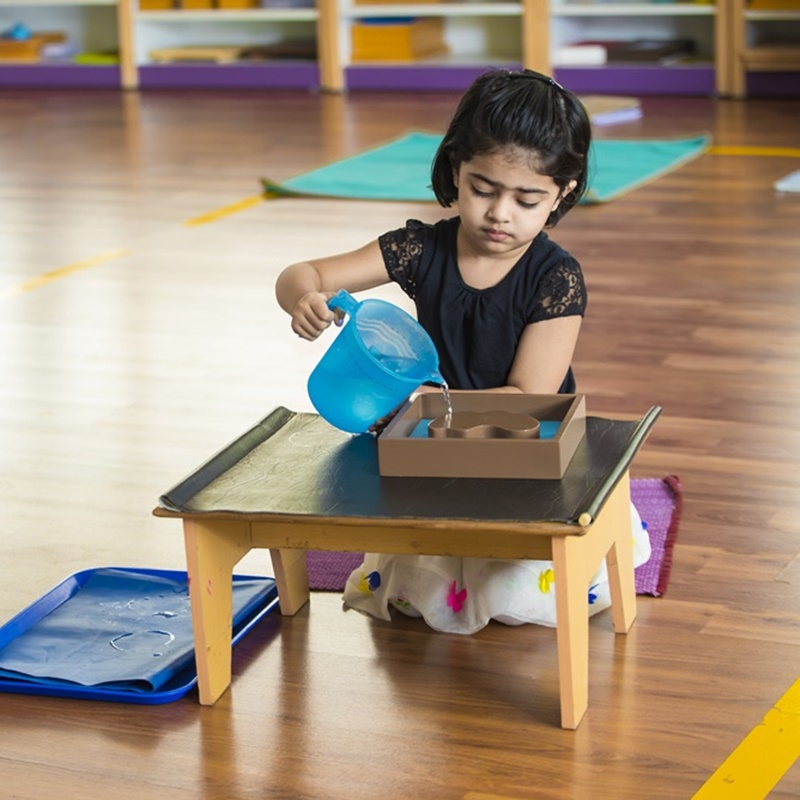
Absorbent Mind
Children have an “Absorbent Mind”, as they are born to learn with a constant readiness and ability to learn. This learning depends greatly on their facilitators, experiences and environments. Our offline and online sessions are designed in such a way, so as to maximize learning for our children, using a multi-sensory approach of visual and audio elements. This aids the various learning styles of our children, helping them absorb and re-emphasise new information.
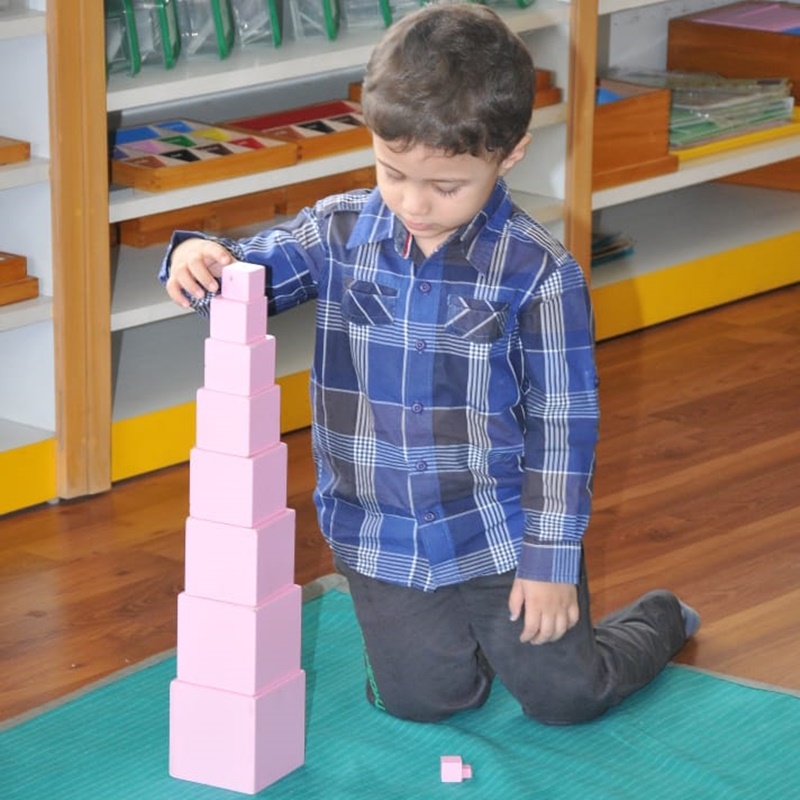
Sensitive Periods
Children have specific periods of heightened learning, called “Sensitive Periods”, which are extremely critical for their holistic personality development. Through their keen observation even during virtual sessions, our facilitators are trained to detect these periods of sensitivity and provide customised learning solutions, specific to every child’s requirement. These learning solutions vary from a more one-to-one interfacing to providing additional resources and support for effective learning to creating opportunities for the fulfilment of the child’s socio-emotional well-being.
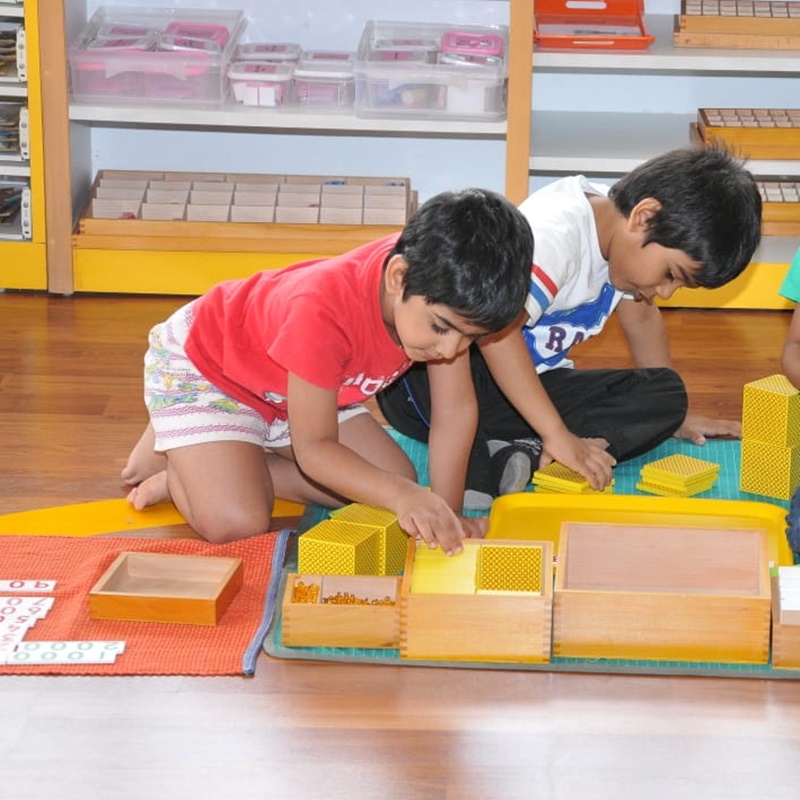
Prepared Environments
All Prayag Centres have well-equipped Prepared Environments. Our online sessions simulate the Prepared Environment, as we have provided learning materials to children, in an orderly format. These materials are based on a child-centred education and active learning. Our children are free to explore materials of their own choice from the wide array they receive, enabling them to be more independent and active. These materials, being multi-sensory in nature, supplement their learning through visual, auditory, kinaesthetic and tactile senses. Besides, we also create opportunities for peer group interaction through a joint assembly, celebration of birthdays, festivals, etc. which involves all the children of the mixed age-group environment.
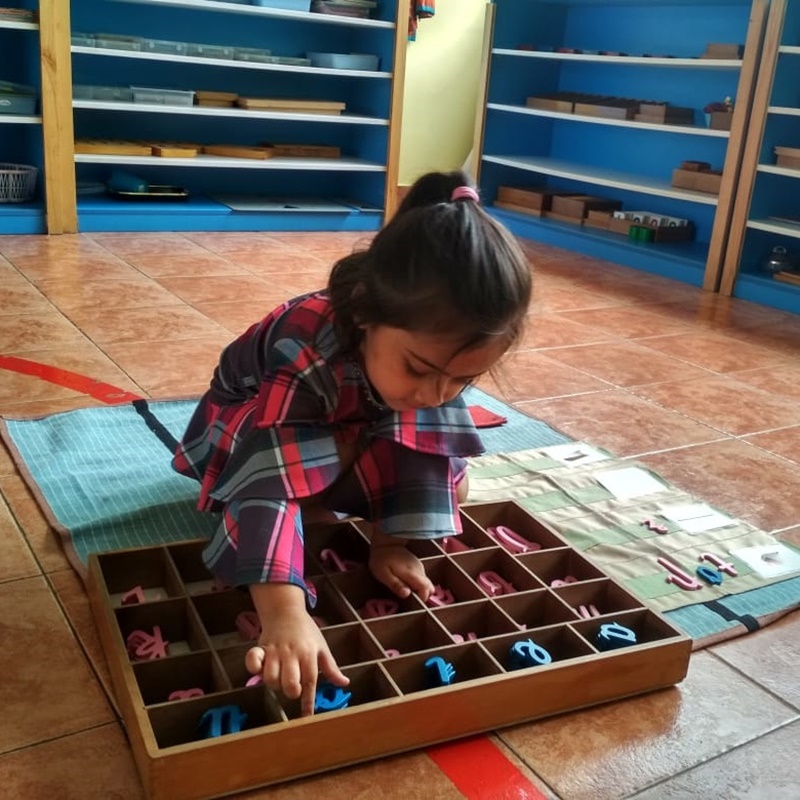
Auto-Education Process
All these elements support our children in their self-education or Auto-Education Process. Our children, in the House of Children or in the virtual prepared environment, are actively involved and able to exercise their freedom of choice, and literally educate themselves. The facilitators guide them by offering new concepts, which are further self-explored by children, leading to deeper learning.
